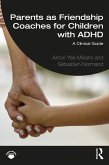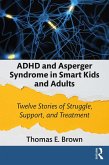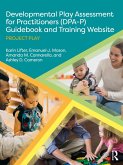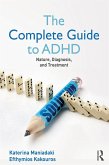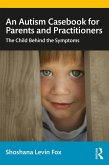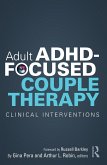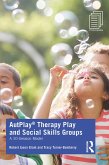Dieser Download kann aus rechtlichen Gründen nur mit Rechnungsadresse in A, B, BG, CY, CZ, D, DK, EW, E, FIN, F, GR, HR, H, IRL, I, LT, L, LR, M, NL, PL, P, R, S, SLO, SK ausgeliefert werden.
"This guide is a wonderful gift to clinicians, filling the enormous need for resources to improve the peer relationships of children with ADHD. Based on years of rigorous research, the Parental Friendship Coaching program uses a behavioral parent training approach to improve social interactions. This comprehensive, practical guide is an essential resource for mental health clinicians in school, primary care, and clinical settings, as well as graduate students preparing to be clinicians and researchers." - Thomas J. Power, PhD, ABPP, distinguished endowed chair in the Department of Pediatrics; director, Center for Management of ADHD, Children's Hospital of Philadelphia, University of Pennsylvania; co-author, Homework Success for Children with ADHD: A Family-School Intervention Program
"Problems with acquiring and maintaining high-quality friendships are a major source of distress for children with ADHD. Parental Friendship Coaching is a unique and innovative program that addresses this. The manual for teaching parents how to support their children with peer relations is rich with strategies based on clinical experience and research. Clinicians who work with children with ADHD should have Parental Friendship Coaching in their intervention repertoire."- Judith Wiener, PhD, CPsych, professor emerita, Department of Applied Psychology and Human Development, OISE/University of Toronto. co-author, Psychological Assessment of Culturally and Linguistically Diverse Children and Adolescents: A Practitioner's Guide
"Mikami and Normand present a very authoritative manual for a parent-mediated intervention to help children with ADHD experiencing difficulties in relationships with friends. At least half of the population of children with ADHD need help in this area and could benefit from this timely book. The program described is for parents working under the guidance of a helping professional, whether in a parent-group format or as a family. Although the material distributed to parents is specific enough to stand on its own, the clinician's judgment provides for personalization and flexibility. The manual contains the details needed for the program to be implemented with integrity, maintaining focus on the behaviors needed to form and make friends. The language used is specific and accessible but not excessively simplistic. The emphasis on empirical evidence is a distinct strength of the program. Materials are provided to evaluate each implementation in a systematic way. The time needed for the evaluation is flexible and by no means excessive. The authors are candid about the empirical foundation of the program: It has been shown to improve the behaviors associated with positive friendship, which is impressive. The program's effect on the subjective aspects of friendship quality has yet to be proven. Thus, the program can be seen as bringing the child with ADHD into a position where the natural processes of attraction between friends may take over and bring rewarding, close relationships." - Barry H. Schneider, PhD, professor emeritus, School of Psychology, University of Ottawa; senior lecturer, Department of Psychology and Neuroscience, Boston College; author, Childhood Friendships and Peer Relations: Friends and Enemies



